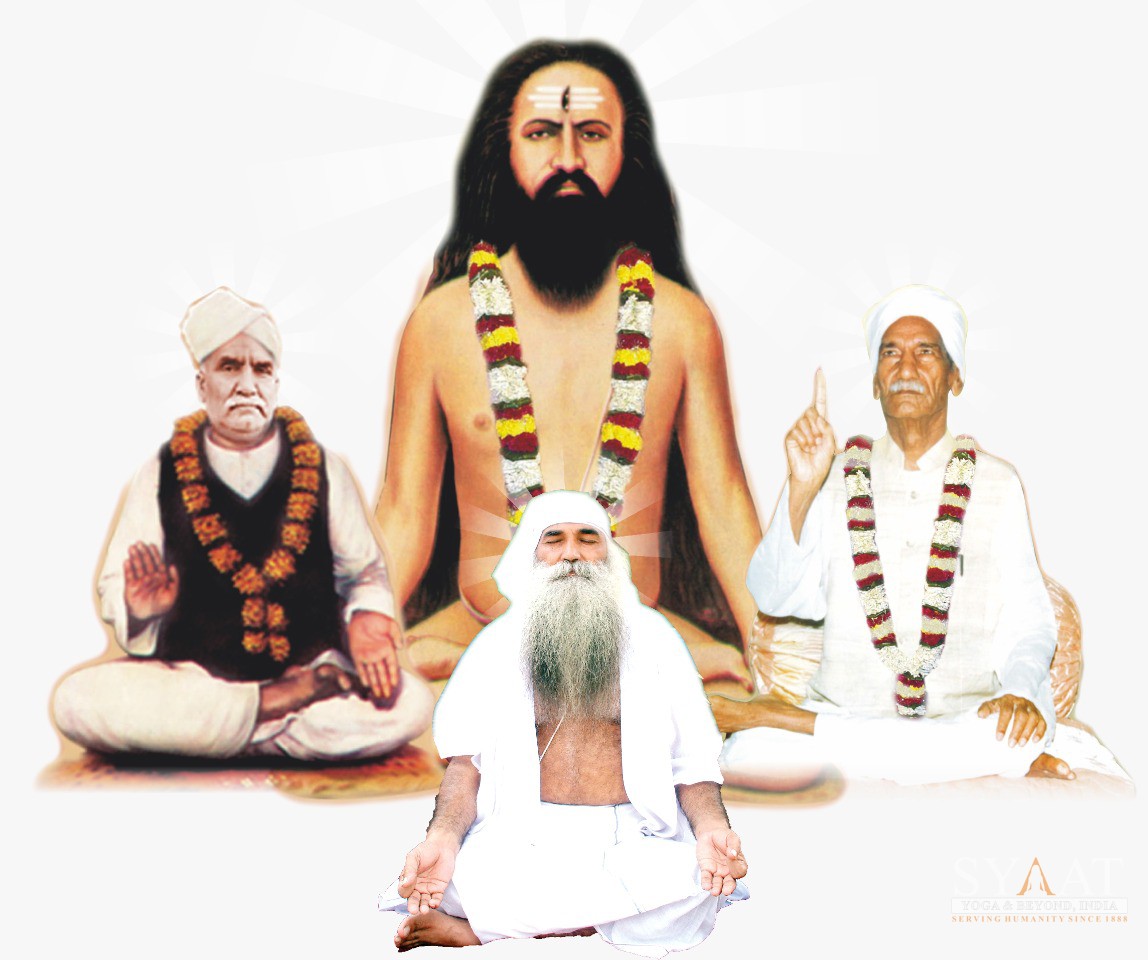Who can be disciple?

Nowadays it seems to be fashion to be a disciple of some swami or saint not to mention the desire to be a guide or a Guru or to be more exact, a disciple cum guru. Having tried to walk on the Godward path on their own, many seekers realise the necessity of receiving guidance from someone to solve many of their spiritual problems revolving around ‘whys’ and ‘How’ ‘Why inspite of living in a cave or on a mountain in solitude and subsisting on bare necessities and simple food of bread and water, do I still have the same feeling of seeking deep in my heart?” Why, inspite of my observing disciple which is considered conducive to spiritual growth, do I feel bored and want to shout?” “I am good to all, smiling at everyone so that may feel good, loving them, giving good counsel and they also shower their love on me; then why do I feel the lack of love of God for me? It seems that even this is not the enough to please Him. What more should I do?” “Although I have gathered the blessings of several great teachers and saints, why do feel frustrated?” Thus he looks for guidance everywhere in teachers, books, communal living, or various modes of discipline in different religions and sects, trying all methods of meditation, worship, witness consciousness or vigorous discipline in Zen, Buddhism, Tibetan Yoga, Upanishads or the Bhakti path but his problems remain unsolved.
Then he hears from other seekers that one must have a Guru, that the Guru is the guide and his grace makes all the difference; so he starts to wander in search of a Guru and stumbles upon a few teachers, going from one to another. If his karma is good, he comes across a real one. Through his own experiences he gets the proofs of such a Guru’s power and grace. He begins to ride on the cloud of joy for having found something he was looking for. He is happier than he ever was before. He declares, “He is my Guru. I am his disciple”. He wants to do only what the Guru tells him to do. He gets intoxicated with the sweet ideas of surrender, devotion and love. In this state he is pleased with himself. He is at rest. But this is just a stop on the way, not an end; it is only the beginning. Faith and devotion may induce a pleasant fervour for some time, but if they are not combined with real inspiration and discrimination they cannot lead to true knowledge and inner illumination.
It is difficult to become a true disciple as it is to find a real Guru. Therefore although one problem is solved, new ones being to emerge when the Guru begins to test the disciple’s fidelity, faith and sincerity. The real Guru knows where his disciple is test him. The Guru is trickier than the trickiest mind of a disciple. Under such circumstances one requires a faith in the Guru which is vaster than the sky, deeper than the ocean and unmovable like the Himalayas.
Just as it is said that the milk of a lioness cannot be contained in anything but a gold pot, so also to hold the divine knowledge imparted by the Guru a disciple has to be worthy of it. The Guru puts the disciple to the test to find out how far he is capable of receiving what he wants to give him, how much strength he has to told himself under different circumstances, how much importance he gives to the Guru’s words and how stabilised he is on the path. Only when the disciple comes out successfully in these tests, does the Guru reveal to him the highest secrets.
In the olden days, the Guru used to put the disciple to very severe tests. But today the seeker wants everything fast, with a minimum of tapasya. It does not suit him to wait patiently and work hard. He wishes to practise sadhana without disturbing his usual life in which the body is not strained, he doesn’t have to part with his money, his relations with his folks and friends are not disrupted; his business is not affected and he is not required to give up his habits and hobbies. Over and above this he expects to get Self realisation very soon in two weeks ! This is the pitiable plight of the majority of modern seekers. How can be Guru put such disciples to the rest?
Many of them do not know what it means to accept a Guru or to become a disciple. Swamiji receives many letters from seekers asking him whether he will be their Guru or accept them as disciples. Some even ask him in person whether or not he has become their Guru. Swamiji always asks them a counter question. “Have you become a disciple?” Here the seeker seems to forget who needs whom does the Guru need the disciple or does the disciple need the Guru? A true Guru is self contented that he needs nothing and nobody. A group of disciples forms around him without his making any effort in that direction because it is the disciple who needs the Guru. He has to accept the Guru irrespective of whether the Guru accepts him as a disciple or not. If the disciple has this attitude, the Guru is bound to accept him. Swamiji once said,”Without being a disciple how can one have a Guru ? How can one talk of having a wife or a husband without marrying?”
In spiritual life the relation between the disciple and the Guru rests on the disciple’s attitude towards the Guru. Mere words like, “I am your Guru and you are my disciple,” or “I accept you as my Guru and you accept me as your disciple,” have no meaning. If the love and faith of a seeker towards the one whom he wishes to accept as his Guru increases, the Guru disciple relationship between them gets established and tends to become firm. Thus it entirely depends upon the disciple whether he is accepted or not. It is useless to ask the Guru about it.
The next question is, what is it to be a disciple? Neither some unusual experiences nor attaining wonderful powers or siddhis makes one a disciple, In this connection one is reminded that even if one abandons the world, applies ashes on the body and retires to the forest, or practices khechari mudra and sits for meditation in vajrasana; still he is kaccha (unripe) and not a true son of the Guru.
One who can become invisible and visible, goes to Mathura and Kashi. or is such a siddha who can go out of his body or inhabits Satyaloka; still he is kaccha and not a true son of the Guru. Also if one has spent ones life in visiting holy places and in knowing all the techniques of Yoga or has attained such a yogic state that he never looks at wealth or women; still he is kaccha and not a true son of the Guru.
Again if one is able to raise his Kundalini to the crown of the head, walk on water; and whatever the utters comes out true; still he is kaccha and not a true son of the Guru.
One who has gathered all knowledge, no book remains untouched, following the path of scriptures he has turned his body into a log of wood(by tapasya). Still he is kaccha and not a true son of the Guru.
Swamiji says, “Hear, O seekers of truth! Only he can attain liberation who has known his true Self through the grace of a Sadguru. Only he is pacca (ripe and a real son of the Guru.”
A disciple may think that he has reached the goal through all these yogic practices but he may be at the same place he started, like a cockroach who, lying with his back on the floor violently waving his hands and feet in the air performing all kinds of kriyas and mudras, thinks that he has travelled very far. What is seen outside does not necessarily indicate inner attainment.
One must always remember why he has come to the Guru. It is to put up a show that he is doing sadhana? That he is a spiritual personality (wearing a mala and saffron clothes)? Does he live in the Ashram to seek praise or for some other selfish motive or desire; or has he come to find inner peace by purification? One who pretends to be what he is not hardly deserved to be called a disciple. By deceiving himself he does more harm to himself than to anyone else. If the desire of one who has come to the Guru for his own selfish purpose is not satisfied, he is bound to lose his faith soon. Therefore one has always to be aware of the fact that to be a disciple means to put oneself in the Guru’s hands in order to become cleansed of all vanities, so that the real Self can shine forth from within. But this is the most difficult part of sadhana. The disciple starts to feel ill at ease as the Guru begins to make him spiritually mature. At this juncture the disciple’s intoxication of love and surrender being to wane. All sorts of thoughts crowd his mind. The barometre of his faith begins to fluctuate up and down. He becomes restless.
Many seekers forget the sadhana is not a bed of roses. It is tapasya and involves discipline and striving. Sadhana is not like taking a stroll in a beautiful garden enjoying the cool breeze and intoxicating fragrance of the flowers which stirs the heart; it is like laboring to build an edifice and sweating while putting one brick on top of another. It is not relaxing but taxing. Progress on the spiritual path can never be made unless all the inner obstacles are removed. A true Guru will not put up with any of his disciple’s faults, but will always try to purify him of all the follies and shortcomings such as laziness, self assertion, short temper, unrestrained ways, undesirable attachments, wrong thinking, jealousier, lack of self control, etc. A Guru who is not interested in the spiritual welfare of his disciples is not a Guru at all. So one must understand that such a Guru is only interested in collecting a large number of disciples. This is not difficult, because easy going seekers are always looking for a teacher who is like themselves, who will allow them to maintain their independence and speak pleasant words. Such a Guru will give some words of advice or deliver a sermon, giving them the feeling that they are spiritual aspirants, without bothering about what they do or how they lead their lives. How far is the seeker going to benefit in his spiritual pursuit from such a Guru? How far will such a Guru be able to effect the cure? Which one of the disciple’s weaknesses will he be able to overcome near him? One should beware of impressing and smiling Gurus more than of frowning Gurus. A Guru only becomes fierce when the occasion demands it. Once Swamiji said that the faults of a disciple can never be destroyed by sweet and pleasant words. It is the sharp edge of a sword, and not a garland of flowers that kills the evil. The Guru may use any method of destroy the weaknesses of the disciple. At such times if the disciple does not forget the real aim for which he came to the Guru, he will not be distressed or lose his faith. Therefore, one should always be aware of one’s own shortcomings. The Guru knows his disciple very well more than the disciple knows himself where his mind is tricky, when he will react, where his seemingly silent ego is likely to raise its head, what will irk him and so on. If the disciple thinks himself perfect and the Guru, while giving him spiritual training, indirectly points out his faults, the disciple will feel that he is misunderstood. He will begin to see contradictions and changes in the Guru. But the fact is that his own thoughts are being reflected by the Guru. Therefore only a person who approaches the Guru with the right attitude of a disciple will be able to see his Guru with true perception.
The more a seeker develops the qualities of a true disciple, the more will he be able to understand his Guru. If he has patience the light will come. But if he has no patience, he will feel the pressures which will make him take opportunities to slip away from it. Once a lady received Swamiji grace and had some experiences without even meeting him personally. She nurtured great love and devotion for Swamiji in her heart, even writing poems on him. She came to live in the Ashram for a fortnight. Everything was elevating and she was blissful. But one who sits to sip honey will get stuck to it like a fly. Therefore, a true Guru will always try to lift his disciple to real freedom freeing him from all his follies and foibles, so that he will be able to soar high into Supreme Bliss. So one day Swamiji’s touched her oversensitive nature. He scolded her in front of others for block feet when he was walking. She was hurt to the core and thought that Swamiji did not value her devotion. She found various excuses for not visiting the Ashram again and worshipped Swamiji from a distance.
There was also a young man who ‘accepted’ Swamiji as his Guru and paid several visits to the Ashram. During these visits he seemed to feel the tension of getting rid of his wrong understanding which meant the shattering of the self magnified image of his greatness as a advanced sadhaka. After this his ‘progress’ was so fast that he began to feel Swamiji his Guru in his heart as well as every where outside. This high state necessarily put a stop to his coming for Swamiji darshan. The problem was that the ‘outer Guru’ did not always agree with the ‘inner Guru’ After sometime he felt the need to guide others and save his brethren. This was the inspiration or command given to him by the ‘inner Self’ and he was acting at his bidding.
This is not the only story of its kind. The moment one feels the grace of the Guru and has many wonderful experiences even miracles begin to happen and he understands certain mysteries and is able to explain them, he begins to feel competent to guide others perhaps that is his inborn mission. He begins to act on his own. The Guru recedes into the background, but of course he inspires his admires with tales of his spiritual attainments and of his surrender, detachment and devotion for the Guru. He is sure he has reached his goal, so the Guru’s grace also returns as he now needs it no longer. The result is that is that the neo guru surrenders to his own fate instead of to his surrenders to his own fate instead of to his Guru. While giving peace to others he begins to exhaust the store of his own peace gathered at the feet of his Guru.
Thus it is very difficult to understand true discipleship. It is beyond the grasp of the common man. Swamiji often says that there are plenty of Gurus in the world but a worthy disciple is rare. The first requirement of a true disciple is that he must have intense aspiration for liberation. Then he should be able to completely merge his entire individually in his Guru. Not an iota of ego is tolerated by the Guru. He must have the strength to live up to the teachings, instructions and guidance of his Guru. His mind should raise no doubts about the Guru’s way of life, behaviour or dealings. Discipleship implies complete dedication. One who gives all gets all. If one does not ask for anything from the Guru, not even his grace, he gets everything. The reason that the disciples of the same Guru do not all progress to the same level is that there is a difference in their ability for Gurubhakti. In Swamiji’s words, Gurubhakti means “harnessing one’s mind, body and soul entirely in the service of the Guru, implicit obedience to the Guru, living continuously in the thought of the Guru and having selfless love for the Guru. Like this if one is able to become a disciple in the true sense of the word one breaks the bondage of sansara, cuts the tie of delusion, burns the net of all his karmas, rises above all sorrows, suffering, and fear and passes into the eternal, all pervading blissful Consciousness becoming the very image of his Guru.
























